QuestionMy cat is around 14 years old. For her food we have always generally left her a full bowl of dry food and water, for her to pick at when she felt like it, and would generally put out one pouch of fresh wet food everyday, though the majority of the time we would always end up throwing the food out again. She would normally have a few bites of food and leave the rest. She never ate a lot, but this was normal for her so we didn't question it.
Recently though, she has been emptying her bowls several times a day, eatng around the amount they reccomend (usually 2-3 sachets of wet food) plus her dry food. She seems to be drinking the same amount of water as normal.
Everything else about her seems normal. I don't know if there is a reason she's eating more or if she's just hungry. She used to catch a lot of birds and mice and eat them, rather than eating the food we put out but now she is too old to catch them so maybe that's why she is eating more? Or could it be something more serious? We worm her every 6 months.
AnswerHi Lousie,
You are right to be aware and concerned of any changes in your cat's normal behavior. It sounds like she is eating a lot of food now. Unfortunately, suddenly eating more at age 14 is a very common sign of hyperthyroidism - a disease which I have experience with as 2 of my cats have developed it. Left untreated hyperthyroidism leads to heart failure, kidney failure and death. Fortunately however it is a very treatable disease.
Hyperthyroidism is caused by a noncancerous tumor of the thyroid gland - the tumor cells constantly produce thyroid hormone regardless of the levels of the hormone already in the blood. This leads to higher and higher levels going up out of control. Since thyroid hormone basically turns up the metabolic rate, it means the cat eats more but loses weight eventually despite eating more, and eventually it will reach a fatal level which usually causes a heart attack.
Fortunately as I mentioned the disease is pretty easy to treat once diagnosed. A treatment called radioiodine (I131) can cure the disease in eligible cats (ie cats with no other complicating conditions). If your cat has hyperthyroidism but cannot undergo radioiodine treatment the next best solution is to manage the disease with a drug called methimazole. The drug does not cure the disease but it neutralizes the effects of the high thyroid hormone levels. Cats who may be eligible for radioiodine treatment usually go on the drug for 1 month to stabilize their thyroid hormone levels and to make sure hyperthyroidism is not hiding kidney failure.
Hyperthyroidism is diagnosed by having the vet run a thyroid panel to test T4 and free T4. Your vet should also palpate the thyroid and try to feel an enlargement, however many hyperthyroid cats do not have palpable enlargements in the thyroid externally. In some cases hyperthyroidism can be difficult to diagnose - for example some other diseases can disguise it.
Cats over 10 years of age should have a full blood panel done every year at least anyway, cats with potential problems every 3-6 months.
There are few other conditions that may cause an old cat to eat more - usually other health conditions will make your cat less interested in food, rather. Getting a full blood panel with thyroid tests will help determine if something is wrong. If you catch and treat hyperthyroidism early, it is very treatable. If it is let go for some time, it may be too late by the time it is treated to avoid damage to the heart and kidneys. So visit the vet ASAP!
As I mentioned I have 2 cats who developed hyperthyroidism. One (now 15 years old) was treated last year with radioiodine (aka I131) and he's cured. My other cat (now 10 years old) was just diagnosed a month ago and is in the hospital right now after having been given her I131, they have to stay 4 days while the clinical collects the urine for biohazard disposal.
Here is some helpful information on hyperthyroidism and its treatment:
http://www.avmi.net/newfiles/Hyperthyroidism/Hyperthyroidism.html
On another note, I don't recommend feeding dry or pouched foods. A high quality canned food is much better for your cat. For more information on cat nutrition, please visit the following websites:
http://www.felinenutrition.net
http://www.catnutrition.org
http://www.catinfo.org
Good luck!

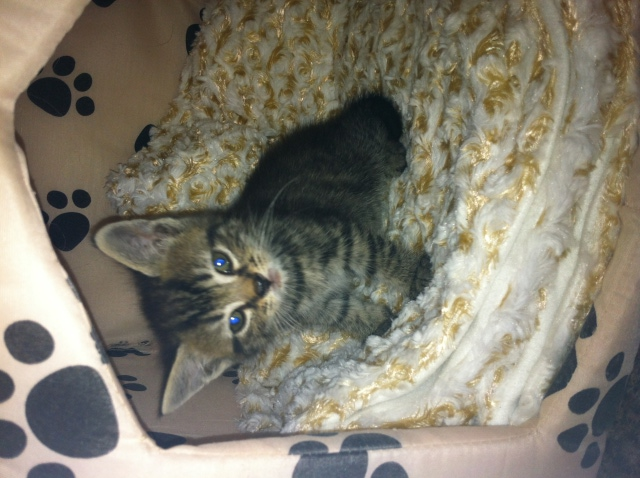 Bengal kitten?
Question
Pic Picture
Hello, I was wonderi
Bengal kitten?
Question
Pic Picture
Hello, I was wonderi
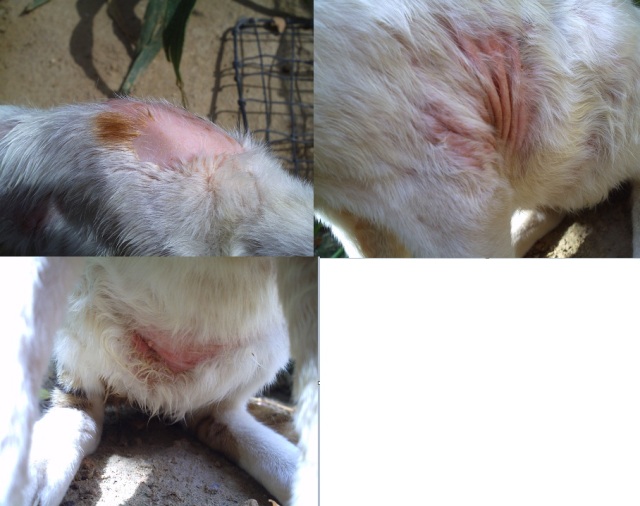 wounded cat hair loss
Question
wounded cat
my one year old cat was bitten by
wounded cat hair loss
Question
wounded cat
my one year old cat was bitten by
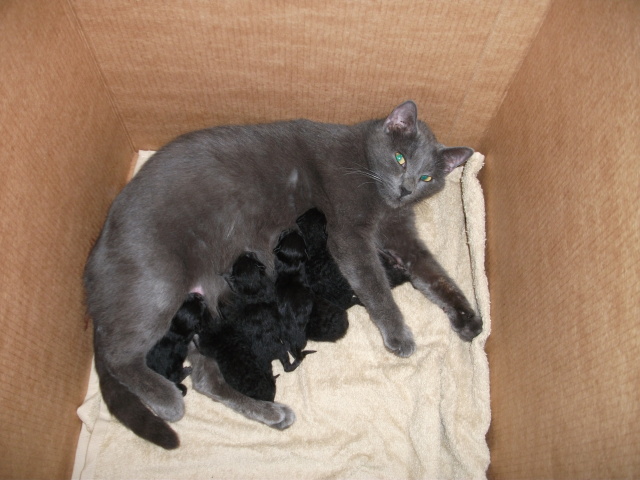 Litter of 9 kittens, born 2/05/10
Question
Smoke and babies
Although we have had 2 adult
Litter of 9 kittens, born 2/05/10
Question
Smoke and babies
Although we have had 2 adult
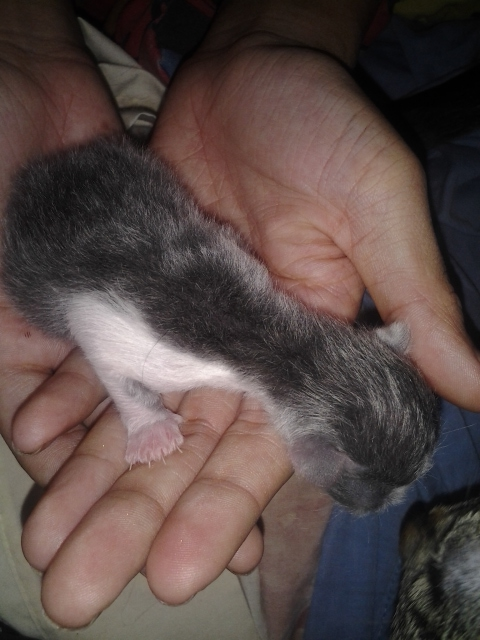 Help with Two Female cats Please!!!
Question
the kitten Cats
Hello, I have two
Help with Two Female cats Please!!!
Question
the kitten Cats
Hello, I have two
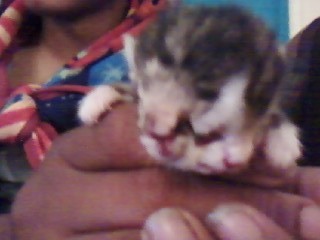 my cat had a kitten with one head and part of another with a mouth and has not nursed since she was born.
Question
my newborn kitten
my cat delivered a female ki
my cat had a kitten with one head and part of another with a mouth and has not nursed since she was born.
Question
my newborn kitten
my cat delivered a female ki